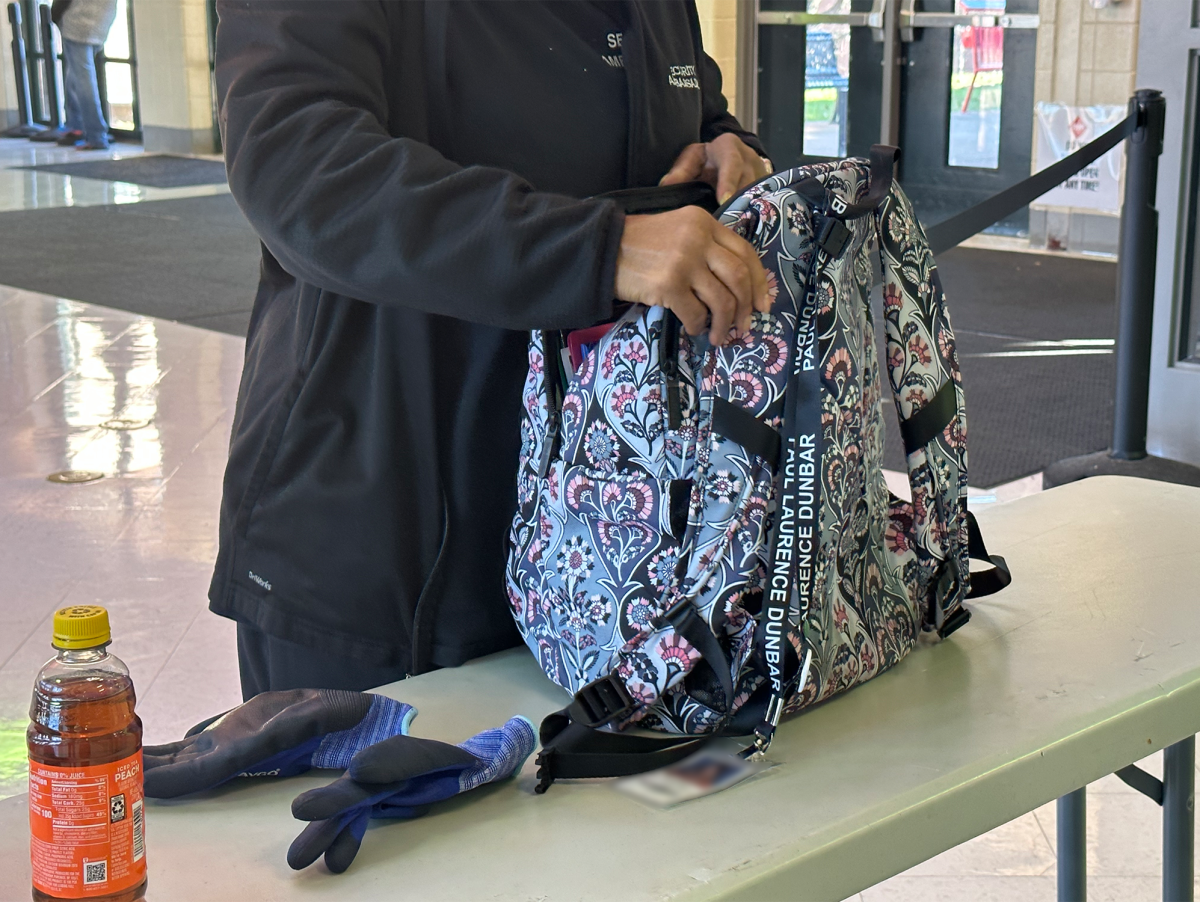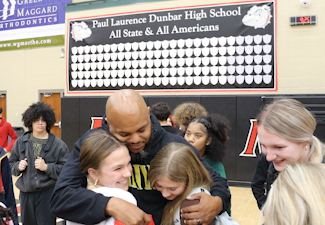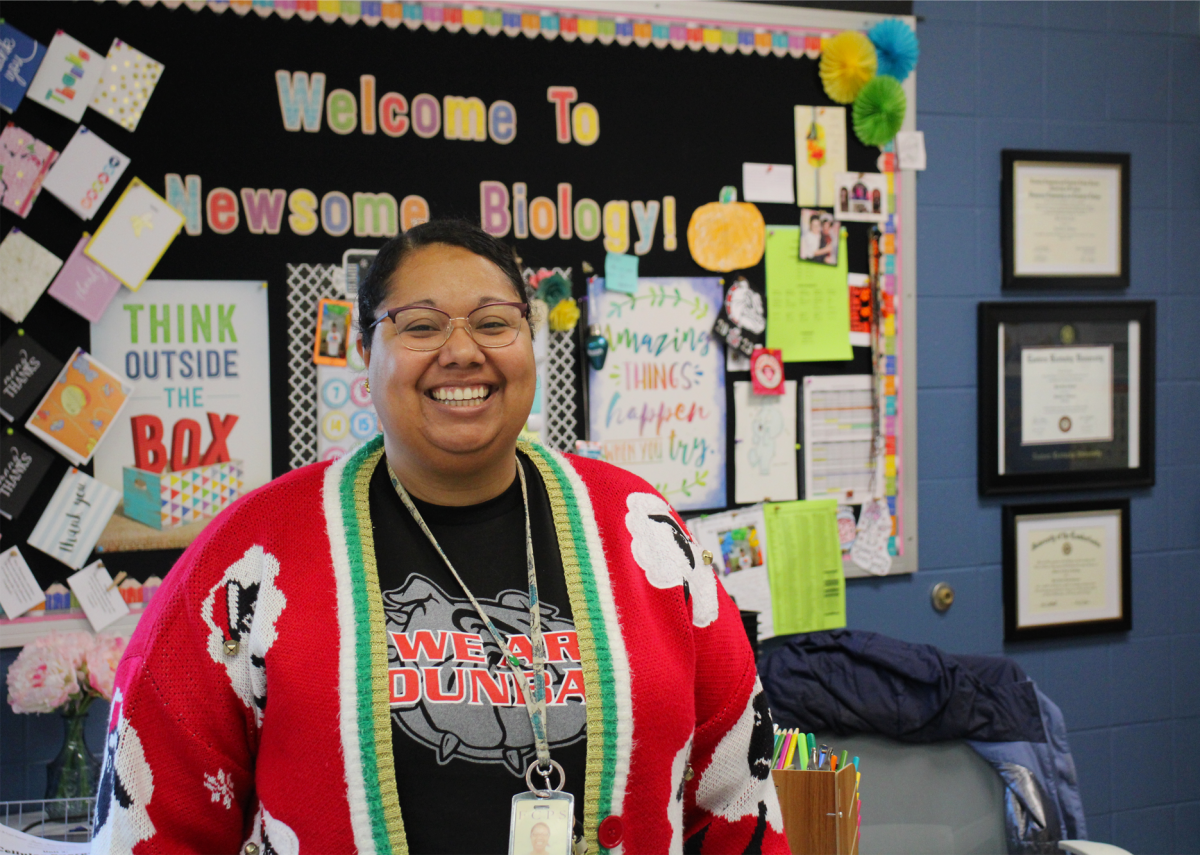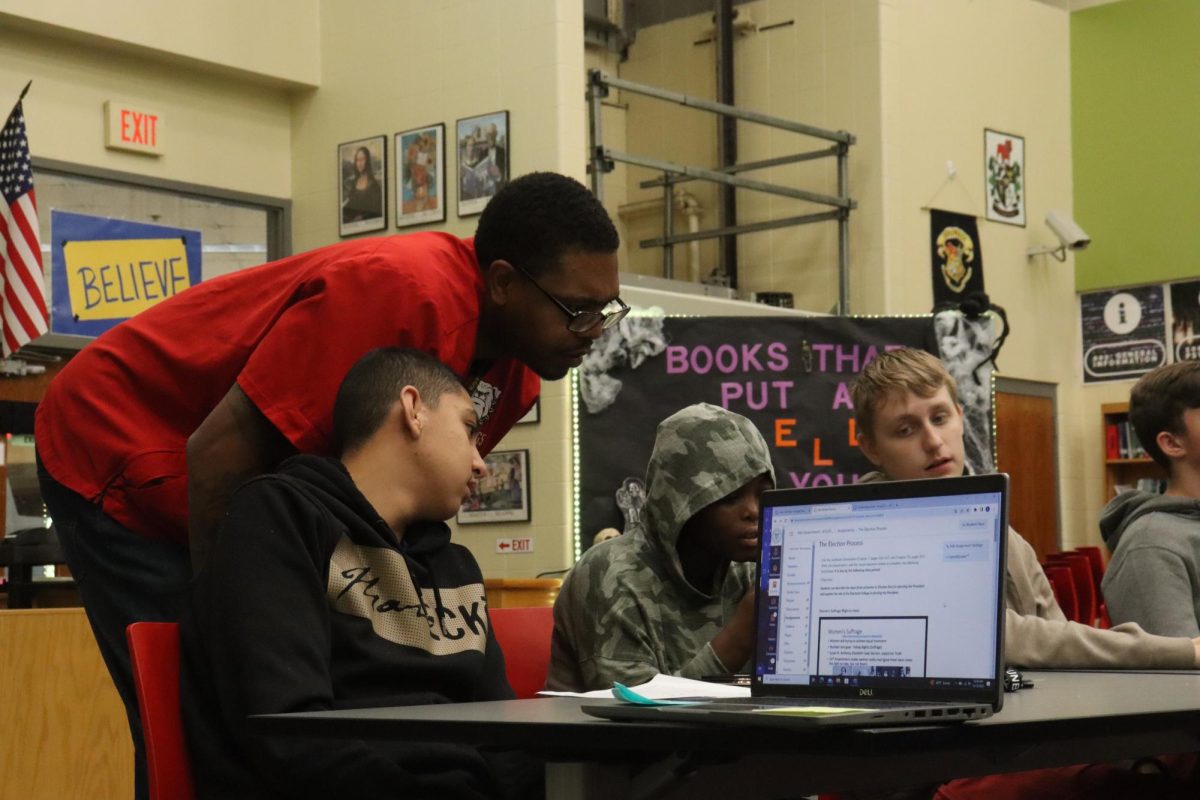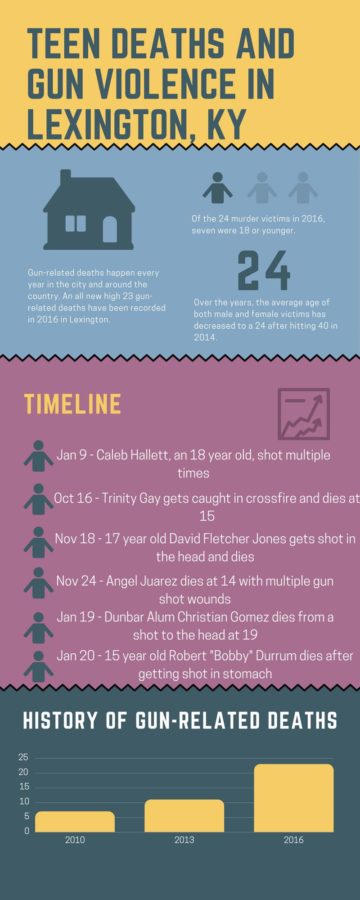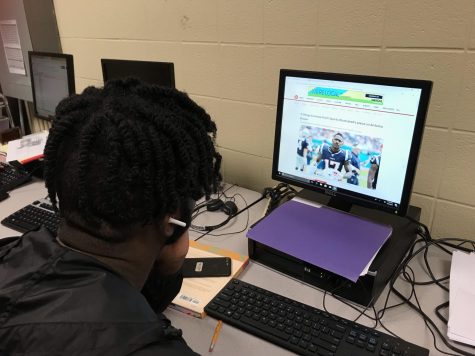Dunbar Student Voices: Teens and Gun Violence
Dunbar Student Voice Team members Santiago Duque and Abby Hendren discuss gun violence
The Student Voice Team includes students from a wide variety of backgrounds who work together and with the Dunbar faculty and staff to create a better school community. Another aspect of their work is producing columns that share a teen perspective on school and community issues. This week, the issue is the rise in gun deaths in Lexington teens.
Abby: So the issue of gun violence has a precedent in Lexington, but the high school community did not address this until late last year. Why do you think that we didn’t start talking about gun violence until recently?
Santi: Gun violence among teens didn’t seem as prominent until very recently. When 15 year old Lafayette teenager Trinity Gay died, it opened my eyes to the reality of gun violence. The issue became all too real and we, as a city, started questioning why this had to happen for us to realize we need to do something about it. How did you feel, Abby?
Abby: For me, it was a huge shock. Like you said, the prominence of gun violence was really brought into the spotlight when someone we knew–and were even with on the night of her death–was killed it. One second you see a young, happy girl walking into a fast food restaurant, and the next she’s gone, due to someone else’s recklessness with a gun. It made me wonder, are we even safe to go out and get food with friends at night? Then we started to realize that this was actually an issue. Seeing someone in our own community taken shocked us into reality. I think the important thing is to make sure it doesn’t just go away–that we actually do something about it before the weight of our peers’ deaths starts to be forgotten.
Santi: But whose responsibility is it to do something? Should we expect students to care about this without any motivation from adults? The people who were closest to the victims usually end up organizing all the movements, and they bring friends and family in to support them. But this obviously hasn’t been enough, because shootings keep happening. I feel like it would be much better to have a community leader organize movements and create motivation for people to care about what’s happening. Who do you think should take charge?
Abby: The thing is, the motivation shouldn’t come from adults. Right now, motivation is coming completely from the shock of students seeing their peers die due to gun violence. And in our case, the We Are the Change rally at Dunbar wasn’t organized by affected families or friends, but by Dunbar students with the help of Mrs. Wendy Turner who felt that the situation needed to be addressed publicly. We are teens. We’ve lost classmates, family members, and friends to gun violence. And even if you haven’t personally, you know somebody who has. This issue has become particularly prevalent in the Lexington-Fayette area. This is our home and it felt like we weren’t doing anything to protect it. The rally was a prime example of how students can come together to make a difference in our community, and to work toward a better, safer future in Lexington.

Santi: Student voices are definitely the best thing we can use to incite change. Through the cooperation of students with their peers and teachers, there could be real change not just in Dunbar, but across every school in town. It all comes down to us moving on from the violence and using it as motivation to make a difference.
Abby: So what are some ways teens can do this? I know that as a young adult I sometimes feel helpless in situations that are so much bigger than me. As teens we are stuck in between total freedom and being treated as a child with our voices being brushed off. What can we do to fix this?
Santi: I understand how you feel. I think that the weakness we have in voice we need to enlarge by strengthening our numbers. The more we come together to form a community and voice of those looking to address problems that not only affect ourselves but our friends, the more we can guarantee that are voices are heard. For example, at Dunbar there are groups like Youth 180, led by Behavior Specialist Mrs. Erin Adcock, which brings together kids who have been exposed to violence in a support group.
Abby: I know there is a program at Lafayette called WAVES (We Against Violence Encourage Strength) which hopes to achieve a similar mission. There are so many small units of people advocating for the same cause that it’s time we all came together to form a larger piece: a movement.
Santi: Yes, exactly. The rally was only a starting point. We need to push ourselves to bring together all that we know and all the voices we have to further the mission of the “We are the Change Rally Against Violence.”
Abby: From what I see, the losses of our friends and family has not weakened us. Instead, it has inspired us to speak out and take action on the things we want to change. Overall, it is not only up to the adults to continue this fight to end gun violence. It is also up to us to carry this message. The feeling of loss may be there forever, but this is not something we would want others to carry as well. Like you said, from here on out, it is about moving on from the violence and using our loss as motivation to make a difference.

Abigail is a Senior at Dunbar who serves as the WPLD Lamplighter Editor-in-Chief, Yearbook Editor, and Senior class Historian-- but she mostly just cares...
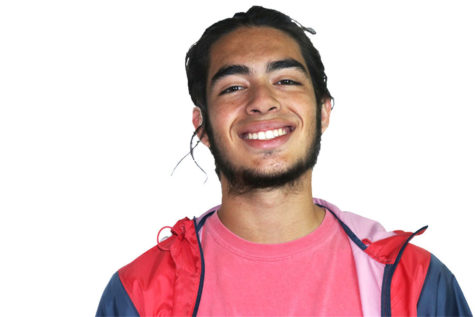
“I don’t like sand. It’s coarse and rough and irritating and it gets everywhere.” Santiago Duque is a senior. He likes spending time with his little...
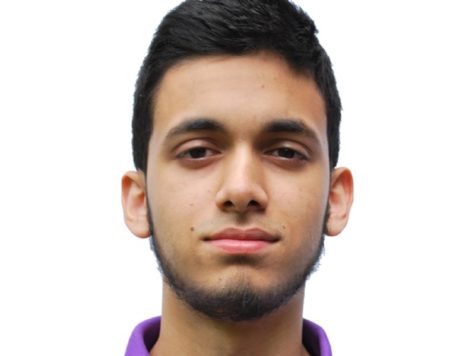
Haris Ali is a state champ of the 2015-2016 boys basketball team. Enough said. #skitit


